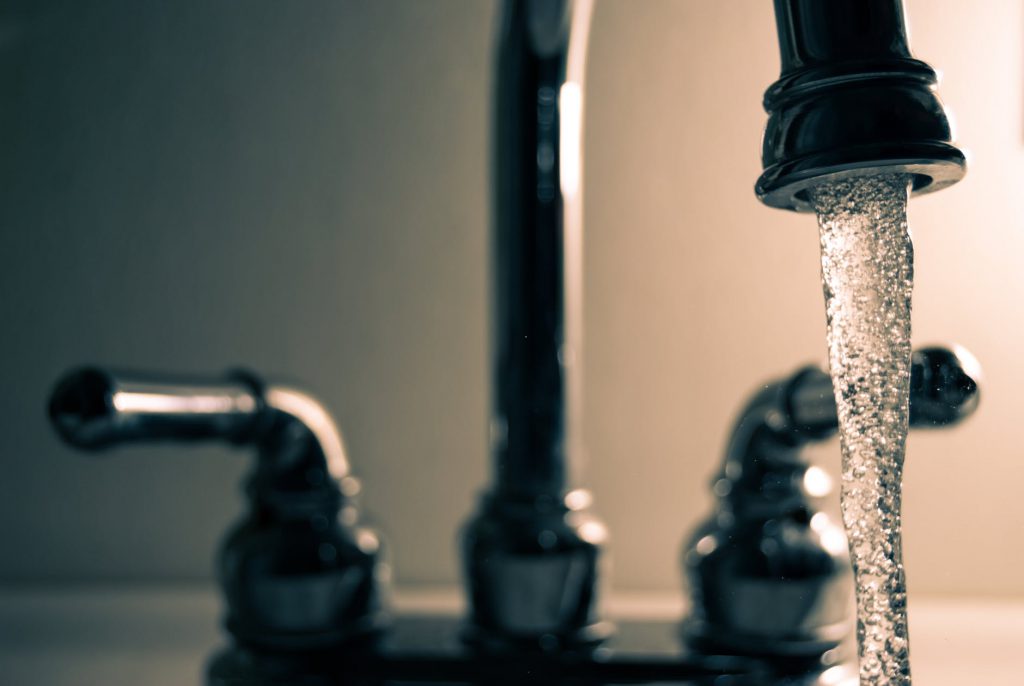Legislature Blocks DNR On Water Pollution
Legislators use rule making authority to prevent water pollution protections.
In early 2019, a drinking water study in rural southwest Wisconsin captured headlines across the state. An alarming 42% of the private wells sampled were contaminated with bacteria or nitrates or both, rendering the water unsafe to drink. The study came on the heels of other concerning well test results in northeast, central and western Wisconsin, and before long, Gov. Tony Evers declared 2019 “The Year of Clean Drinking Water” – a move to clean up the state’s growing contamination crisis. A centerpiece of the efforts announced by the governor that year was the development of new protections to reduce nitrate pollution in Wisconsin’s most geologically vulnerable areas, places where critical groundwater resources are quickly affected by contamination.
After two years of work, Wisconsin was on the verge of taking important steps to tackle the most widespread water pollution issue in the state. Nitrates are harmful chemicals that primarily come from agricultural activities, and they have been contaminating the drinking water of tens of thousands of rural Wisconsin families for years.
Unfortunately, this week the Department of Natural Resources was forced to abandon its pursuit of new, commonsense rules to protect families because our own Legislature stands in the way. Instead of working to ensure Wisconsinites have safe water, the Legislature created a system of barriers to developing public health protections, undermining the DNR and preventing the agency from reducing water pollution.
For decades, the DNR used a clear, scientific process to set water quality standards and develop guidelines to help manufacturers and farmers protect their communities from water pollution. Now, the Legislature has developed an entirely new rule-making process driven by special interests, one that imposes arbitrary deadlines and elevates the costs of preventing pollution over the benefits of protecting families. We are now beginning to see just how damaging it has become for Wisconsin.
The actions DNR had proposed through this two-year process to reduce nitrate pollution were developed and discussed in detail with agricultural and conservation organizations, including ours. The proposed protections would have put Wisconsin families on a path to safe drinking water by prohibiting activities we know lead to nitrate pollution, like spreading manure on bare fields in vulnerable areas of the state and putting nitrogen fertilizer out late in the year, which greatly increases the chance it will seep into drinking water. The DNR’s work to develop a system that helps farmers track nitrogen applications on farm fields had one simple goal—don’t put so much nitrogen on those fields that it pollutes drinking water.
Every day the Legislature stands in the way of the DNR is another day thousands of Wisconsinites bear the financial and health costs of unsafe water. But this is not an impossible problem. We can reduce nitrate pollution in our drinking water in ways that strengthen our agricultural industry and prepare farms for the future. The protections put forward by the DNR were a sensible, science-based attempt to guide that transition. Realizing a future with clean drinking water and a resilient, sustainable agricultural community will require changes to how we farm, and Clean Wisconsin is ready to work with and support the agricultural community throughout this process.
While we are extremely disheartened to see this effort undercut from the outset by the Legislature and some groups in the agriculture industry, we know many farmers and some farm organizations in Wisconsin are striving to play a positive role in reducing drinking water pollution. We are committed to continuing to work with the Department of Natural Resources, the Evers administration, state and local lawmakers, and the agricultural community to deliver on the promise of clean drinking water for every Wisconsin family.
Legislative roadblocks force DNR to abandon water pollution protections was originally published by the Wisconsin Examiner.
Scott Laeser leads Clean Wisconsin’s efforts to address agricultural pollution of Wisconsin’s water resources
Op-Ed
-
Wisconsin Candidates Decry Money in Politics, Plan to Raise Tons of It
 Dec 15th, 2025 by Ruth Conniff
Dec 15th, 2025 by Ruth Conniff
-
Trump Left Contraceptives to Rot; Women Pay the Price
 Dec 8th, 2025 by Dr. Shefaali Sharma
Dec 8th, 2025 by Dr. Shefaali Sharma
-
Why the Common Council’s Amended Budget is Good Policy for Milwaukee
 Nov 20th, 2025 by Alds. Marina Dimitrijevic and Russell W. Stamper, II
Nov 20th, 2025 by Alds. Marina Dimitrijevic and Russell W. Stamper, II























Republicans champions of water pollution.
God, because of course they did.
Perhaps they believe only democrats drink tap water.
..and because reading a label is hard they don’t see that what’s in the bottle is from a municipal source not a “fresh” spring.
The City of Milwaukee has some of the cleanest, best tasting drinking water on the planet thanks to its ozone treated water supply… After the new ozone generators were added to the system, Mayor Barrett said that Milwaukee tap water was so clean, pure, and tasty that Milwaukee could bottle its water and sell it to the rest of the world…
I have to admit, Milwaukee has great tasting, sparkiling clean water…and that probably makes Robin Vos and Scott Walker very angry…